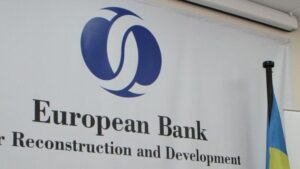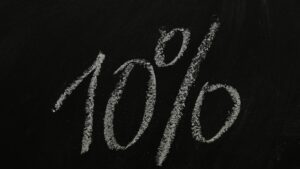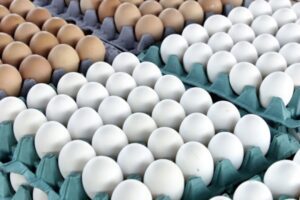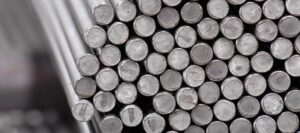
The US authorities believe that they have already introduced the bulk of the sanctions against the Russian Federation, and now it is necessary to achieve their implementation, Jake Sullivan, US presidential adviser on national security, said on Thursday.
“We believe that we have adopted the main sanctions, and in the coming days we will focus our attention on trying to avoid their action,” Sullivan was quoted by Western media as saying at the Economic Club forum in Washington.
According to him, in the coming two weeks, the US administration will announce measures to identify those who help the Russian Federation to circumvent the sanctions imposed because of the full-scale war unleashed by the Russian Federation against Ukraine and because of the aggression of Russian troops shocking the world.
“I think that in the next one or two weeks we will announce those who contribute to the circumvention of sanctions both in Russia and abroad,” the adviser stressed.

The European Bank for Reconstruction and Development (EBRD) has approved a framework program of up to EUR2 billion under the EBRD’s Sustainability Package, the bank’s broad strategic approach in response to Russia’s war against Ukraine.
“The framework program will use various types of financial instruments for private clients, sovereigns, municipalities, municipal companies and other state-owned enterprises and financial intermediaries (including state-owned banks) in Ukraine and neighboring countries affected by the influx of Ukrainian refugees,” the message says. bank website on Thursday.
According to him, the Board of Directors made a decision on April 4. He included Bulgaria, Croatia, the Czech Republic, Estonia, Hungary, Latvia, Lithuania, Moldova, Poland, Romania, Slovenia and Slovakia among the affected countries.
Subprojects will be provided at the expense of the usual resources of the bank, including its financing under the guarantees of donors, the report specifies.
The overall goal of the program is to help support service delivery and protect business activity in Ukraine and affected countries, with the ultimate goal of preserving livelihoods, the EBRD said.
“For Ukraine, the framework covers all sectors, with a particular focus on energy security, vital infrastructure, food security and pharmaceutical supply chain support,” the release notes.
In the case of the affected countries, refugee-related issues will be addressed, and will mainly cover areas such as energy security, municipal and national infrastructure, and liquidity through capital markets and financial intermediaries.
“As a result of the war in Ukraine, the market for liquidity and long-term financing is practically closed, and in the affected countries is significantly limited, as both local and international financial institutions tighten risk appetite. provides greater financial security driven by unprecedented adverse market conditions and heightened uncertainty,” the paper concludes.

At a scheduled meeting of the Monetary Policy Committee (MPC), the National Bank of Ukraine (NBU) once again decided to keep the key policy rate at 10%, given the ongoing war in the country unleashed by Russia.
“Under the current conditions, the impact of the key policy rate on the functioning of the money market and the FX market remains limited. With this in mind, the key policy rate will stay flat at 10% until monetary transmission channels are effective again,” the NBU said on its website on Thursday.
As reported, in early March, the National Bank, in the face of Russia’s large-scale armed aggression, kept the refinancing rate at 10% per annum, postponing the decision to revise it until the economic situation normalizes.

Demand for eggs quadrupled in March in the LotOK convenience store chain, demand for pet products tripled, for groceries doubled, and for tobacco products and drinks and non-alcoholic beverages almost doubled. Demand for confectionery grew 1.5 times, but demand for vegetables and bakery products remained at the same level.
Such data was given in a commentary to Interfax-Ukraine by marketing director of the LotOK store chain Olha Momchylovych.
At the same time, she said that the demand structure of large supermarkets and convenience stores is significantly different.
“If in peacetime for small stores located in residential buildings and residential complexes, the top categories of demand are tobacco products, soft drinks, confectionery, dairy products and groceries, then in the first days of the war, groceries took the top position in demand, and eggs joined the top categories,” Momchylovych said.
At the same time, demand for dairy products temporarily decreased in March, which, the expert emphasized, was the result of a disruption in supply chains.
“In April, we see almost the full recovery of milk sales,” Momchylovych said.
At the same time, she predicts, April results in terms of the structure of demand will differ from March due to the lifting of restrictions on the sale of alcohol and alcoholic beverages, as well as the resumption of operation of a number of enterprises.
“During the first ten days of April, the demand for alcohol increased almost 2.5 times, the level of demand for eggs is still at the level of March, and the demand for groceries has returned to pre-war levels,” she said.

Lithuania is ready to help Ukraine export unsold volumes of grain from last year’s harvest, Lithuanian Minister of Communications and Transport Marius Skuodis told reporters.
According to him, grain can be transported through Poland to the port of Klaipeda. Companies have already submitted proposals.
“We have been working with the Ukrainians for several weeks now, the most important thing is coordination with the railways. Several companies have already received specific proposals for transportation from the Ukrainian-Polish border to the port of Klaipeda,” Skuodis said.
At the same time, he noted that the main problem lies in the different width of the railway track of the Russian and European types.
“It is rather difficult to switch from Russian standard tracks to European ones in Poland, then to the Kaunas intermodal terminal and beyond. These are issues related to the availability of wagons and other things,” Skuodis said.
According to him, a trial train is already planned, which should leave in the coming weeks.
“The trial run is scheduled for April. We are ready for our part, we just need customers, and we can try in late April – early May, then we’ll see. Of course, the most direct route will be through Belarus, but this country is involved in certain military operations, therefore it would be impossible,” Skuodis said.
Grain export from Ukraine was disrupted due to Russia’s military actions on Ukrainian territory.
According to the head of the European Commission in Lithuania, Marius Vashchega, Ukraine occupies 10% of the world wheat market, 13% – barley, 15% – corn, more than 50% of the sunflower oil market.

Global demand for steel in 2022 will increase by only 0.4% and amount to 1.84 billion tons (1.834 billion tons in 2021), the World Steel Association predicts.
In 2023, according to WSA expectations, steel demand will increase by 2.2%, to 1.881 billion tons.
The total demand for steel in the Russian Federation, CIS countries and Ukraine this year, according to WSA forecasts, will fall by 23.6% to 44.6 million tons (58.5 million tons in 2021). In 2023, an increase of 1.1% is expected, to 45.1 million tons. At the same time, steel consumption in Russia will fall by 20%, to 35.1 million tons against 43.9 million tons in 2021.
CIS COUNTRIES, DEMAND, RUSSIA, STEEL, WORLD STEEL ASSOCIATION